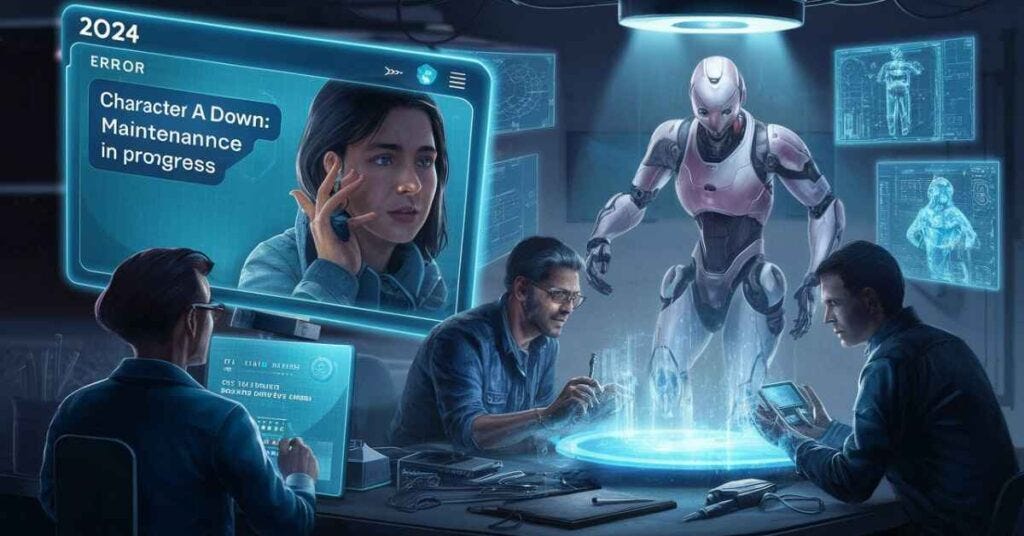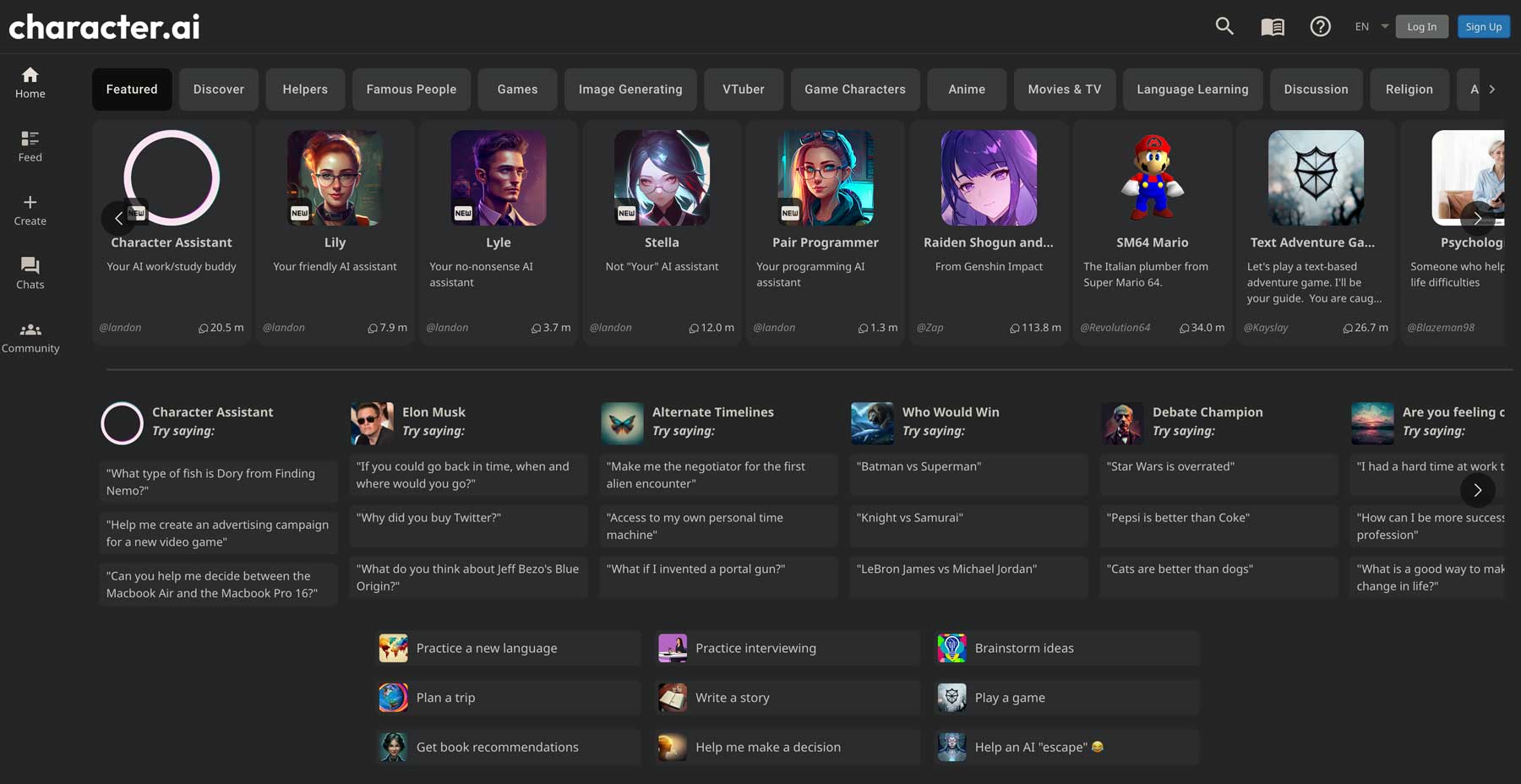

Introduction to AI Character Software
Definition of AI Character Software
AI Character Software refers to digital systems designed to create proactive, intelligent characters that can interact with users in a natural, engaging way. These characters are equipped with abilities to understand context, generate dialogue, and respond intelligently, thanks to advancements in natural language processing (NLP) and machine learning.
Importance of Character AI in Various Industries
Character AI is becoming essential across a multitude of sectors, enhancing user experiences and operational efficiency. Here’s how it impacts different industries:
- Customer Service: Provides immediate assistance, reducing wait times.
- Gaming: Creates immersive storytelling experiences with interactive NPCs (non-playable characters).
- Education: Tailors learning experiences, offering personalized tutoring.
For instance, in gaming, players often recount their memorable experiences with dynamic characters that feel real, showing just how crucial these AI systems have become in shaping modern interaction.

The Working Mechanism of Character AI
Natural Language Processing in AI Character Software
At the heart of AI Character Software lies Natural Language Processing (NLP), the technology that enables characters to understand and generate human language. This allows characters to interpret user input seamlessly and respond in a conversational manner.
- Key functions of NLP include:
- Text Analysis: Dissecting phrases to grasp meanings.
- Sentiment Analysis: Understanding emotional tones.
Think about chatting with a virtual assistant; the lifelike responses make interactions enjoyable and intuitive.
Deep Learning Algorithms in Character AI
Deep Learning algorithms further empower character AI by mimicking human thought processes. These algorithms learn from vast datasets, enabling characters to recognize patterns and improve over time.
- Typical methodologies include:
- Neural Networks: Emulating human brain function for better learning.
- Reinforcement Learning: Characters adapt based on feedback from interactions.
This combination of NLP and deep learning enriches user experiences, making interactions feel nearly human-like, as many users can attest.

Advantages of Character AI Systems
Improved User Engagement
One of the standout benefits of Character AI Systems is their ability to enhance user engagement. These intelligent characters can create captivating interactions that keep users invested.
- Ways to improve engagement include:
- Conversational Flow: Maintaining dialogue that feels natural.
- Real-time Feedback: Adapting responses based on user input.
For example, many gamers report spending hours immersed in worlds where characters remember past interactions, making every encounter feel personal and significant.
Personalization and Customization Features
Character AI also shines in offering personalization and customization features. Users can often tailor their experiences to suit individual preferences.
- Customizable elements might include:
- Character Responses: Adjusting behavior based on user history.
- Appearance Settings: Allowing users to modify character looks.
This level of personalization fosters a sense of ownership and connection, making the experience uniquely satisfying for each individual. Many players enjoy crafting their characters, enhancing their overall engagement.

Challenges and Limitations of Character AI
Ethical Concerns and Data Privacy
While Character AI offers exciting benefits, it also raises significant ethical concerns, particularly regarding data privacy. Users often share personal information, trusting that their data will be protected.
- Key issues include:
- Data Misuse: Potential for unauthorized access to sensitive information.
- User Consent: Ensuring individuals understand how their data is used.
For instance, many users remain uneasy about how companies may utilize their conversations with AI characters, prompting a careful reconsideration of privacy policies.
Accuracy and Reliability Issues
Another challenge lies in the accuracy and reliability of character responses. While AI continues to improve, misunderstandings can still occur.
- Common inaccuracies involve:
- Context Misinterpretation: Characters may misread user intent.
- Inconsistency in Responses: Variations in how characters reply over time.
These issues can lead to frustrating experiences. Many users have shared stories where AI characters failed to grasp the nuances of their queries, underscoring the need for ongoing improvements in character AI technology.

Applications of Character AI in Different Sectors
Customer Service and Support
Character AI is revolutionizing customer service by providing quick and efficient support. Virtual assistants powered by AI can address customer inquiries around the clock, enhancing overall user satisfaction.
- Benefits of AI in customer service:
- 24/7 Availability: Customers receive help anytime.
- Instant Responses: Reduces wait times significantly.
Many businesses have found that customers appreciate the immediate assistance offered by AI characters, leading to a notable increase in overall engagement and loyalty.
Gaming and Entertainment Industry
In the gaming and entertainment industry, Character AI creates immersive experiences by enabling characters to interact dynamically with players. This technology adds depth and realism to storytelling.
- Examples of applications:
- Dynamic NPC Behavior: Characters react thoughtfully to player actions.
- Interactive Storytelling: Players influence plot outcomes based on choices.
Gamers frequently share their excitement about open-world games, where interactions with AI-driven characters create memorable adventures that feel uniquely personal. This ongoing evolution in character AI continuously reshapes user experiences across various sectors.

Future Trends in Character AI Development
Integration with Virtual Reality and Augmented Reality
Looking ahead, the integration of Character AI with Virtual Reality (VR) and Augmented Reality (AR) promises to transform user interactions dramatically. Imagine stepping into a digital world where AI characters respond to your actions with uncanny realism.
- Potential benefits include:
- Enhanced Immersion: Characters become vital players in your virtual journey.
- Realistic Interactions: Users feel a stronger emotional connection.
Many gamers eagerly anticipate these advancements, recalling early VR experiences and dreaming of how lifelike characters will elevate future games.
Advancements in Emotion Recognition Technology
Another exciting trend is the advancement of emotion recognition technology, which empowers characters to understand and react to human emotions.
- How it works:
- Facial Expression Analysis: Characters interpret user emotions through visual cues.
- Voice Tone Detection: Adjusting responses based on mood inferred from speech.
These developments will enable characters to foster deeper connections, allowing for empathy and understanding in interactions. Users can certainly look forward to more engaging and emotionally resonant experiences as this technology evolves.
